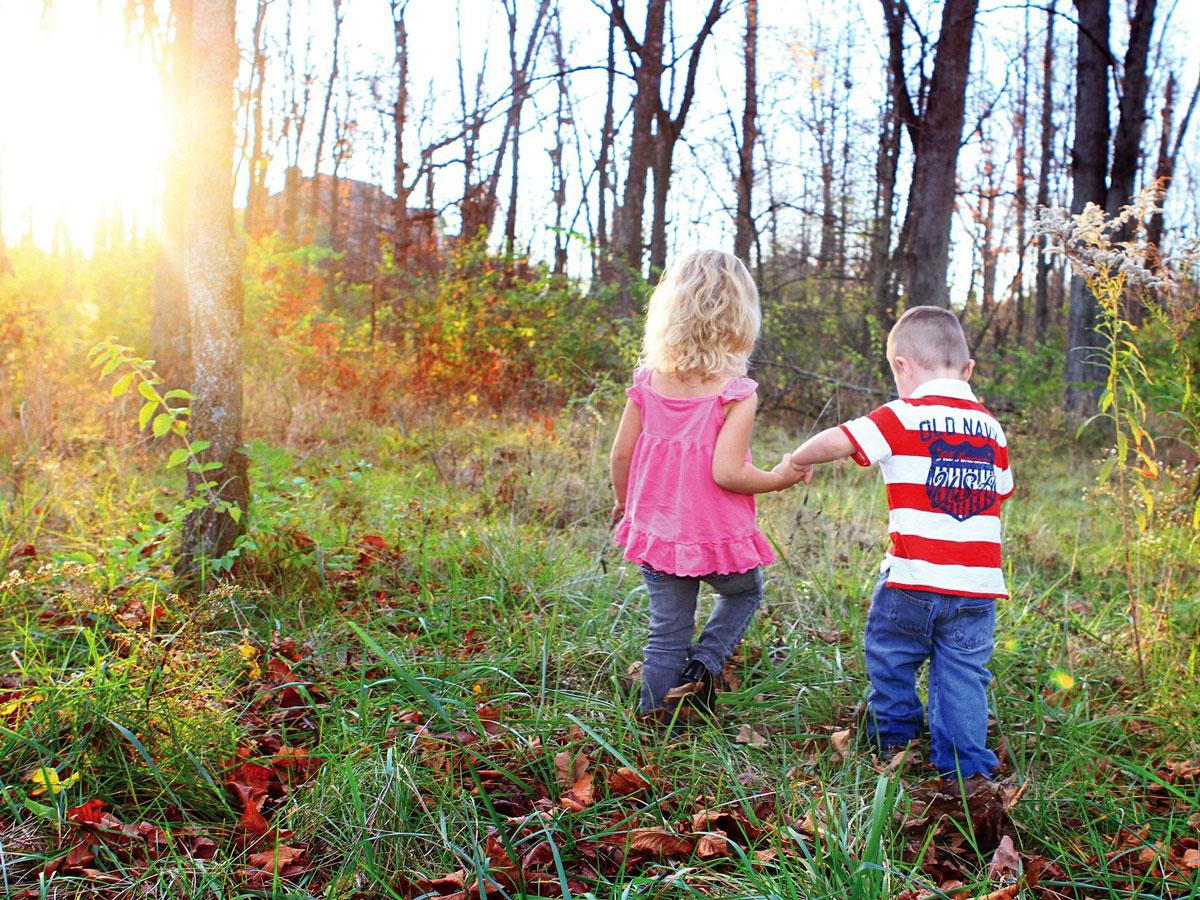Green time is better than screen time

Children and teenagers could potentially improve their wellbeing and achieve better school results by spending more time outdoors, University of Adelaide research suggests.
School of Public Health researcher Tassia Oswald conducted a scoping review of 186 studies from around the world, and found ‘green time’ appears to be better for children and adolescents’ mental health and academic achievement than ‘screen time’.
Screen time
Time spent watching TV, computers or playing video games - generally associated with poor psychological outcomes for children and adolescents including increased levels of mental illness, lower levels of positive mental health, poorer cognitive functioning and poorer academic achievement.
Green time
Time spent in the natural environment – generally associated with favourable psychological outcomes including lower levels of mental illness, greater levels of positive mental health, superior cognitive functioning, and higher academic achievement.
Tassia suggests that further research will help us to work out whether we should focus our efforts on reducing young peoples’ screen time; or whether simply increasing ‘green time’ alongside their ‘screen time’ would be beneficial for their psychological wellbeing.
“Prevention is key and identifying exposures which harm or help mental health is especially important for young people,” she says.
Tassia’s study also found that young people from low socioeconomic backgrounds were underrepresented in the literature, which is problematic given they may be disproportionately affected.
“Children and adolescents from low socioeconomic backgrounds may engage in higher levels of screen time and have less access to nature in their neighbourhoods,’’ she says.
“The psychological consequences of excessive screen time appears to possibly be worse for these children, while psychological benefits of green time appears to possibly be greater for these children.”

Urban garden image by Jacob Mills
School of Biological Sciences’ urban ecologist Jacob Mills says that diverse natural environments provided the most health benefits to humans.
“Exposure to green spaces with higher eco-system function give children better exposure to pick things up from soil. For example, there are microbial compounds in soil that reduce stress and anxiety,” he says.
“Exposure to high biodiverse environments also comes with the potential to reduce the rates of non-communicable disease such as asthma, inflammatory bowel disease, and allergies which have been linked to less diverse human microbiomes.”
“Put simply, the more diverse microorganisms that children are exposed to, the healthier they will grow up, as it improves the training of our immune systems to fight illness and disease.”
Jacob’s PhD research is in the field of ‘microbiome rewilding’, which is the process of restoring the microbiome of urban green spaces.
He says that rewilding of urban spaces could be implemented as a potential preventative health measure, and this may be particularly beneficial in lower socio-economic areas and could lessen the burden on our health systems.
